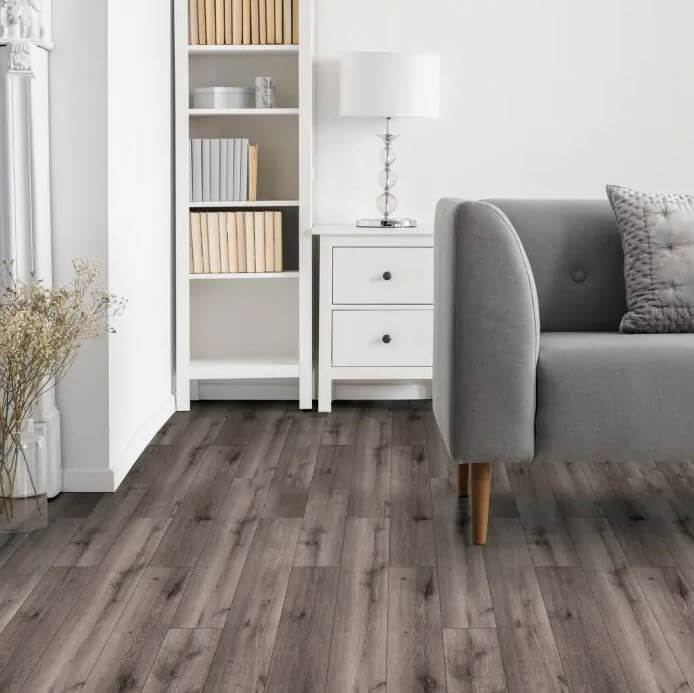Vinyl flooring has steadily risen in popularity over the years, becoming a go-to option for homeowners, interior designers, and commercial spaces alike. Its appeal lies in its versatility, durability, and cost-effectiveness, offering a range of styles and finishes that can replicate the appearance of more expensive materials such as hardwood, stone, and tile. This guide will explore the benefits of Vinyl Flooring Dubai , its types, maintenance tips, and why it remains a top choice for flooring solutions.
Why Choose Vinyl Flooring
Vinyl flooring stands out for a variety of reasons, making it an excellent choice for numerous applications. Here are some key benefits:
Affordability: Vinyl flooring is significantly more affordable than natural hardwood, ceramic tiles, or stone. It provides a high-end look at a fraction of the cost.
Durability: Designed to withstand heavy foot traffic, vinyl is resistant to scratches, dents, and stains. This makes it ideal for households with pets, children, or areas with frequent use.
Water Resistance: Vinyl flooring is highly resistant to water and moisture, making it a perfect choice for kitchens, bathrooms, and basements where humidity levels are higher.
Ease of Installation: Modern vinyl flooring options often come with click-and-lock or peel-and-stick systems, allowing for straightforward DIY installation. Professional installation is also relatively quick and cost-efficient.
Variety of Styles: Vinyl comes in a wide range of designs, colors, and textures. Whether you prefer the warm aesthetic of wood or the sleek appearance of marble, there’s a vinyl option to match your vision.
Comfort Underfoot: Vinyl is softer and warmer underfoot compared to materials like tile or stone, enhancing comfort, especially in colder climates.
Types of Vinyl Flooring
Understanding the different types of vinyl flooring can help you choose the best option for your space. The primary types include:
Sheet Vinyl:
Sold in large rolls, sheet vinyl is an economical option and works well in areas prone to moisture, such as bathrooms.
It’s seamless when installed correctly, reducing the risk of water seepage.
Vinyl Plank Flooring (LVP):
Designed to mimic the look of hardwood, vinyl plank flooring is a popular choice for living rooms, bedrooms, and dining areas.
It comes in individual planks, providing a realistic wood-like appearance.
Luxury Vinyl Tile (LVT):
LVT is crafted to replicate the appearance of stone or ceramic tiles. It offers a textured surface and a realistic finish.
This type is often used in kitchens and bathrooms for its aesthetic appeal and water resistance.
Rigid Core Vinyl:
This subcategory includes Stone Plastic Composite (SPC) and Wood Plastic Composite (WPC) flooring. These options have a rigid core for added durability and stability.
Ideal for uneven subfloors, they’re a great choice for basements or commercial spaces.
How to Maintain Vinyl Flooring
One of the significant advantages of vinyl flooring is its low-maintenance nature. Here are some tips to keep your floors looking their best:
Regular Cleaning:
Sweep or vacuum daily to remove dirt and debris that can cause scratches.
Use a damp mop with a mild, non-abrasive cleaner for deeper cleaning.
Protect from Heavy Furniture:
Use furniture pads or casters to prevent dents and scratches from heavy furniture.
Avoid dragging furniture across the floor.
Avoid Harsh Chemicals:
Stay away from abrasive cleaners or those containing ammonia, as they can damage the finish of your vinyl flooring.
Manage Moisture:
While vinyl is water-resistant, it’s essential to wipe up spills promptly to prevent liquid from seeping into the seams.
Prevent Sun Damage:
Prolonged exposure to direct sunlight can cause fading. Use blinds or curtains to protect your flooring in sunlit areas.
Is Vinyl Flooring Right for You
Vinyl flooring is an excellent choice for a variety of applications, but it’s essential to weigh its pros and cons relative to your specific needs. If you’re looking for an affordable, durable, and stylish flooring option that’s easy to maintain, vinyl is likely a perfect fit.
However, those seeking a completely natural material or a long-term investment may lean toward hardwood or stone instead. While vinyl is durable, it doesn’t offer the same resale value as natural materials.
Environmental Considerations
Modern vinyl flooring manufacturers are making strides in sustainability. Many options now include recycled materials and low-VOC (volatile organic compound) adhesives, making vinyl a safer and more eco-friendly choice than in the past. Additionally, proper disposal and recycling programs can help reduce its environmental impact.
Conclusion
Vinyl flooring has earned its reputation as a versatile, durable, and stylish option for residential and commercial spaces. Its affordability and range of design options allow homeowners to achieve their desired look without compromising on quality or functionality. Whether you’re renovating a single room or an entire house, vinyl flooring is a practical and attractive solution worth considering.
By understanding the different types, maintenance requirements, Flooring Dubai, you can make an informed decision that suits your lifestyle, aesthetic preferences, and budget. With proper care, vinyl floors can provide years of comfort and beauty, proving why this material continues to be a favorite in the world of interior design.



